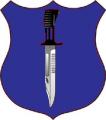A military commission was appointed to try the petitioner for an alleged war crime. The trial was ordered to be held in territory over which the United States has complete sovereignty. No military necessity or other emergency demanded the suspension of the safeguards of due process. Yet petitioner was rushed to trial under an improper charge, given insufficient time to prepare an adequate defense, deprived of the benefits of some of the most
Page 327 U. S. 28
elementary rules of evidence, and summarily sentenced to be hanged. In all this needless and unseemly haste, there was no serious attempt to charge or to prove that he committed a recognized violation of the laws of war. He was not charged with personally participating in the acts of atrocity, or with ordering or condoning their commission. Not even knowledge of these crimes was attributed to him.
It was simply alleged that he unlawfully disregarded and failed to discharge his duty as commander to control the operations of the members of his command, permitting them to commit the acts of atrocity. The recorded annals of warfare and the established principles of international law afford not the slightest precedent for such a charge. This indictment, in effect, permitted the military commission to make the crime whatever it willed, dependent upon its biased view as to petitioner's duties and his disregard thereof, a practice reminiscent of that pursued in certain less respected nations in recent years.
In my opinion, such a procedure is unworthy of the traditions of our people or of the immense sacrifices that they have made to advance the common ideals of mankind. The high feelings of the moment doubtless will be satisfied. But in the sober afterglow will come the realization of the boundless and dangerous implications of the procedure sanctioned today.
No one in a position of command in an army, from sergeant to general, can escape those implications. Indeed, the fate of some future President of the United States and his chiefs of staff and military advisers may well have been sealed by this decision.








 I appreciate the mental function check.
I appreciate the mental function check. 



Bookmarks